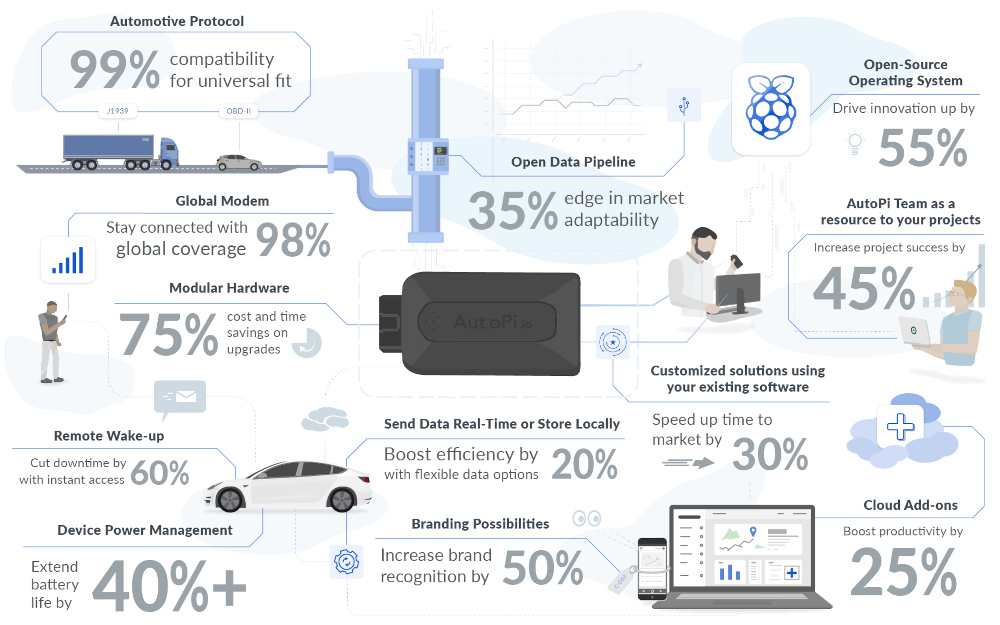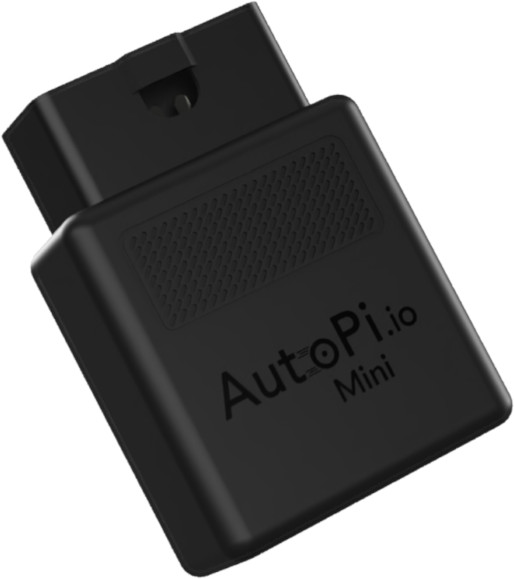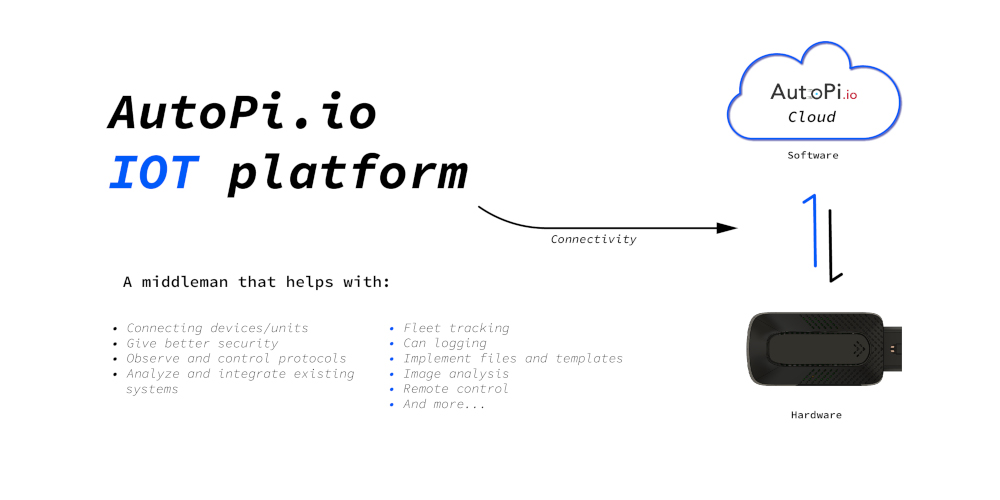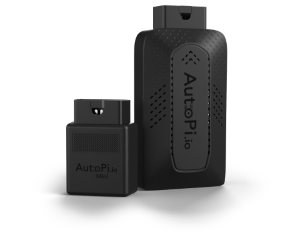In an era where automotive technology is advancing at a rapid pace, the automotive data loggers emerges as a critical tool for revolutionizing vehicle telematics and fleet management. Tailored to meet the intricate needs of developers and fleet managers, this device stands at the forefront of innovation and practicality.
This guide is meticulously crafted to navigate you through the intricate features and robust capabilities of AutoPi devices.
In this guide, we'll embark on a journey to explore:
-
Introducing the AutoPi Devices and their impact on automotive technology.
-
Exploring the AutoPi Mini and TMU CM4, highlighting their unique features.
-
Discussing the benefits of AutoPi Devices for fleet operations and development.
-
Overview of shared features in the AutoPi Mini and TMU CM4.
-
Real-world applications and effectiveness of AutoPi Devices in various scenarios.
-
Summarizing key points and guiding readers on next steps with AutoPi Devices.
Our journey is set to equip you with comprehensive knowledge of all AutoPi Device.
Our goal is to provide you with a comprehensive understanding of the AutoPi Device’s capabilities and how they can be leveraged in the realm of automotive technology.
By the end of this guide, you’ll be well-equipped with the knowledge to utilize these devices to their fullest potential, whether for innovative development projects or efficient fleet management.
What is an AutoPi Device?
The AutoPi Device stands at the forefront of automotive innovation, embodying a sophisticated telematics unit that integrates advanced connectivity and data analytics into the realm of automotive technology. Designed to bridge the gap between complex vehicle data and actionable insights, this device is transforming how vehicles communicate and perform.
At the heart of its functionality is the ability to connect seamlessly to a car's OBD2 port (locate your obd2 port here), a standard interface found in most modern vehicles.
This connection allows the AutoPi device to access a wealth of vehicular data directly from the car's onboard systems, ranging from real-time engine metrics to driving patterns. By tapping into this data, the device unlocks the potential for enhanced diagnostic capabilities, real-time vehicle monitoring, and more intelligent fleet management solutions.
This device comes in three main variants: the AutoPi CAN-FD Pro, AutoPi TMU CM4 and the AutoPi Mini, each tailored to different applications within the automotive industry.
AutoPi TMU CM4 (Explore Now):
The AutoPi TMU CM4 is particularly advantageous for developers due to its customizable nature. Built on the foundation of a Raspberry Pi, it offers a high degree of flexibility and adaptability, allowing developers to tailor the device to specific project requirements. This customization capacity makes the AutoPi TMU CM4 an ideal choice for innovative automotive solutions, where bespoke functionality and specific application development are key. Its architecture, leveraging the versatility of a Raspberry Pi, opens up a wide array of possibilities for developing unique telematics applications, making it a powerful tool in the hands of skilled developers.
AutoPi Mini (Explore Now):
On the other hand, the AutoPi Mini is designed with simplicity and ease of use in mind, making it particularly suitable for fleet management purposes. Its plug-and-play nature ensures that it can be easily implemented and used without the need for extensive customization. This feature is especially beneficial for fleets that require straightforward telematics solutions without the complexities of extensive programming or customization. The AutoPi Mini provides the essential functions needed for effective fleet management, packaged in a user-friendly and accessible format.
NEW! AutoPi CAN-FD Pro (Explore Now):
This new and improved device is our most powerful yet. It’s specifically designed for high-speed automotive data logging across two CAN-FD channels, giving users precise and exact data for their needs. Additionally, we’ve integrated onboard CAN decoding, eliminating the need to send raw CAN data for those who don’t require it. For users who need remote live debugging and interaction with the CAN buses, this can be done securely through a VPN powered by Tailscale and WireGuard. For more details, be sure to check out the device!

Improving Fleet Operations with AutoPi Devices
In the dynamic world of automotive technology, the AutoPi Devices have emerged as crucial tools, bringing unparalleled efficiency and innovation to fleet operations.
This section aims to illuminate the benefits these devices offer to users, specifically developers and fleet managers, and how they practically implement these advantages in real-world scenarios.
-
Why choose AutoPi devices for your automotive applications?
-
Our users benefit significantly from the AutoPi Devices, as they transform vehicle and machine management with cutting-edge technology, enhancing operational capabilities and offering a competitive edge in the automotive industry.
Benefits for AutoPi Device Users
The choice of AutoPi Devices is fundamentally about realizing the potential for enhanced efficiency and innovation in fleet operations and automotive development. These devices represent a commitment to leveraging advanced technology to improve both the functionality and management of vehicles. For users, this translates into the assurance of working with tools that are at the cutting edge of automotive technology.
This commitment is not just about keeping operations running smoothly; it's about being at the forefront of industry developments, ensuring safety, efficiency, and maintaining a competitive edge in a rapidly evolving sector.
The Practical Implementation of Benefits
From a practical standpoint, the AutoPi Devices shine in their ability to transform raw vehicle data into actionable insights by using e.g. DBC files. Their connection to the vehicle’s OBD2 port is a gateway to a wealth of data, which when harnessed correctly, can to significant improvements in vehicle diagnostics and fleet management. For example, fleet managers utilizing the AutoPi Mini can optimize GPS asset tracking, schedule maintenance proactively, and ensure driver safety. Such capabilities not only reduce operational costs but also elevate the level of service reliability.
For developers, the value lies in the AutoPi TMU CM4’s customizable nature. Built on a Raspberry Pi foundation, it offers a canvas for creating bespoke telematics solutions. This adaptability allows for the development of applications that precisely meet project requirements, demonstrating the device’s versatility in various automotive applications.
In essence, AutoPi Devices represent more than just telematics tools; they are integral components in the quest for advanced fleet management and automotive development. For users who seek to harness the full potential of their automotive operations, these devices offer a path to not just meet but exceed expectations in efficiency, innovation, and reliability.

Key Features of AutoPi Devices
The AutoPi Devices stand out in the automotive technology market with a suite of features designed to revolutionize vehicle management and telematics. Here, we detail these features and how they can be leveraged for substantial benefits.
Global Connectivity:
Both devices are equipped with a global modem, ensuring seamless connectivity across different geographic locations. This feature is vital for international fleet operations, providing reliable vehicle tracking and data transmission worldwide.
Comprehensive Connectivity Suite:
The inclusion of Bluetooth, GPS, and 4G/LTE in the AutoPi Mini, TMU CM4 and CAN-FD Pro ensures constant and robust connectivity. This integration is crucial for applications requiring real-time vehicle monitoring and data communication.
Extensive Vehicle Interface Compatibility:
Each device supports a wide array of vehicle interfaces, including OBD-II and CAN. This compatibility allows for detailed vehicle diagnostics and extensive data access, vital for thorough maintenance and performance monitoring.
Safety and Efficiency Features:
Safety is a paramount concern, addressed in both devices with features like accelerometers for motion detection and real-time clocks for accurate data timestamping. The SPM (Power Safe Mode) enhances energy efficiency, ensuring long-term device operation.
Automotive Certification:
All the AutoPi devices are automotive certified, meeting industry standards for safety and reliability in automotive environments. This certification ensures that they are suitable and safe for use in a wide range of vehicles.
Explore our related article to understand how AutoPi cloud computing services enhance fleet management by integrating with AutoPi devices.
This overview provides a comprehensive look at the features of both the AutoPi Mini and the AutoPi TMU CM4, highlighting their capabilities and the broad range of applications they can support in the automotive industry.
AutoPi Mini
Robust Connectivity:
Equipped with Bluetooth, GPS, and 4G/LTE, the AutoPi Mini ensures consistent, real-time connectivity for efficient vehicle tracking and data communication.
OBD Automotive Interface Compatibility:
Including support for Legacy K-Line and KWP, allows for comprehensive vehicle diagnostics and data access, essential for maintaining vehicle health and performance.
LED Indicators:
Provide immediate visual feedback on the device’s status, simplifying diagnostics and monitoring.
Automotive Certification and Safety:
The device meets rigorous industry standards, ensuring reliability and safety in automotive environments.
Configurable Over-The-Air Updates:
This feature allows for seamless remote updates, ensuring the device remains up-to-date with the latest software enhancements and security features.
Embedded SIM and Power Safe Mode:
The included SIM facilitates constant connectivity, while the Power Safe Mode conserves energy and ensures long-term operation.
Motion and Time Sensing:
An accelerometer for detecting vehicle movement and a real-time clock for accurate time-stamping enhance the device's utility in fleet management.
Ready for CAN Bus Integration:
Enables the device to connect with the vehicle’s Controller Area Network for a deeper level of data analysis and monitoring.
AutoPi TMU CM4
Diverse Connectivity Options:
Alongside Bluetooth, GPS, 4G/LTE, the AutoPi TMU CM4 includes WiFi and Ethernet Ports, offering a wide range of connectivity possibilities for different use cases.
Enhanced Vehicle Interface Options:
With OBD and dual CAN Automotive Interfaces, the device caters to advanced diagnostic and communication needs.
Customization and Expandability:
The HAT expandability feature and software customization, backed by a Linux OS, allow for the development of tailored applications, making it highly adaptable for various projects.
Physical Features for Enhanced Usability:
Keyless entry, effective heat dissipation mechanisms, I/O buttons, and a secure element for data security. Upgradable storage options, HDMI port, and a built-in speaker add to its versatility.
Innovative Data Management:
Features like Diagnostics over Internet Protocol (DoIP) and a dual CAN interface facilitate complex data handling and diagnostics.
Sensor Integration:
A gyroscope for precise motion tracking and an accelerometer for impact and movement detection broaden the scope of data collection.
24V Vehicle Support:
Making it suitable for a range of vehicles, including larger trucks and heavy-duty vehicles.
Docker Integration:
For efficient software management, allowing for the deployment and management of containerized applications.

Practical Use Cases of AutoPi Devices
The AutoPi devices, including both the AutoPi Mini and the AutoPi TMU CM4, offer a range of functionalities that can be applied in diverse contexts within the automotive industry. Here are some key use cases:
-
Fleet Management and Optimization: AutoPi devices streamline fleet operations by providing essential data on vehicle performance and logistics. They facilitate efficient scheduling and logistical planning, to more streamlined fleet operations and enhanced resource management, crucial for maintaining a competitive edge in fleet management.
-
Problem: Managing a fleet efficiently can be challenging due to factors like lacking data insights, unscheduled maintenance, and high fuel consumption.
-
Solution: AutoPi devices enable real-time vehicle tracking, vehicle data, and maintenance scheduling, improving operational efficiency and reducing costs.
-
-
Advanced Vehicle Diagnostics: The AutoPi devices utilize their interface capabilities to offer comprehensive insights into vehicle systems. This level of diagnostics is key to maintaining vehicle performance at optimal levels, contributing to longevity and reliability, crucial in reducing long-term operational costs.
-
Problem: Unforeseen vehicle breakdowns and maintenance issues can cause significant operational disruptions and expenses.
-
Solution: Through OBD and CAN interface capabilities, AutoPi devices provide comprehensive vehicle diagnostics, allowing for proactive maintenance and reducing downtime.
-
-
Driver Behavior Monitoring: By monitoring driver behavior, AutoPi devices aid in identifying areas for driver improvement and training. This proactive approach contributes to safer driving practices, potentially lowering insurance costs and enhancing overall fleet safety standards.
-
Problem: Unsafe driving habits can to increased accidents and higher maintenance costs.
-
Solution: The devices track driving behaviors, providing data to improve driver safety training, reduce accident risks, and maintain vehicle condition.
-
-
Telematics Data Analysis: The devices leverage their robust connectivity to gather extensive telematics data, vital for strategic planning and operational adjustments. This in-depth analysis aids in identifying trends and areas for efficiency improvements, crucial for data-driven decision-making in fleet management.
-
Problem: Optimizing vehicle use and understanding operational impact can be complex without detailed data.
-
Solution: The connectivity features of AutoPi devices allow for extensive data collection and analysis, offering insights for operational improvements and decision-making.
-
-
Remote Vehicle Control and Monitoring: AutoPi devices enable advanced remote interactions and DoIP capabilities with vehicles, enhancing the convenience and responsiveness of fleet operations. These remote features are essential in modern fleet management, offering an added layer of operational flexibility and control.
-
Problem: Maintaining control and oversight of vehicles remotely can be challenging.
-
Solution: AutoPi devices offer functionalities for remote vehicle control and status monitoring, enhancing convenience and operational control for users.
-
-
Custom Solution Development for Developers: The AutoPi TMU CM4 is particularly beneficial for developers, offering a customizable platform for creating specialized automotive applications. This flexibility is invaluable for developing innovative solutions tailored to specific industry needs or project requirements.
-
Problem: Developing tailored automotive solutions requires flexible and customizable hardware and software.
-
Solution: The AutoPi TMU CM4’s Linux OS and hardware expandability enable developers to build custom applications for specific automotive needs, from IoT integrations to Ethereum-based blockchain.
-
-
Support for a Wide Range of Vehicles: The versatile design of the AutoPi CAN-FD Pro, including its 12V and 24V support, makes it suitable for a broad spectrum of vehicles and machines. This adaptability ensures that the device can meet the varying requirements of different automotive types, from standard passenger cars to larger commercial vehicles and machinery.
-
Problem: Different types of vehicles, including larger trucks, have diverse telematics requirements that standard devices may not meet.
-
Solution: Features like 12V and 24V support in the CAN-FD Pro make these devices versatile for use in various vehicle types, including heavy-duty trucks.
-
These use cases demonstrate the versatility and practicality of the AutoPi devices in various scenarios, highlighting their ability to meet the evolving demands of the automotive industry. Explore more about our business solutions.

Key Takeaway
To wrap it up, our comprehensive exploration of the AutoPi devices has revealed their multifaceted capabilities and the significant value they add to fleet management and automotive development.
Recap:
-
Fleet Management and Optimization: AutoPi devices enhance fleet efficiency through effective monitoring and data-driven management strategies.
-
Advanced Vehicle Diagnostics: They offer detailed diagnostics capabilities, ensuring vehicle health and reducing maintenance costs.
-
Driver Behavior Monitoring: The devices aid in promoting safer driving practices and reducing accident risks.
-
Telematics Data Analysis: With robust connectivity, these devices provide valuable insights for optimizing vehicle use and operational efficiency.
-
Remote Vehicle Control and Monitoring: They enable advanced remote functionalities, adding flexibility and control to vehicle management.
-
Custom Solution Development for Developers: Particularly the AutoPi TMU CM4, it offers a customizable platform ideal for developing bespoke automotive solutions.
-
Versatility for Various Vehicle Types: The devices’ adaptability makes them suitable for a wide range of vehicles, including larger commercial vehicles.

As we conclude, the AutoPi devices stand out as comprehensive solutions for modern automotive challenges. For users looking to harness the full potential of these devices in their fleet operations or development projects, further exploration and engagement with AutoPi’s resources and community can provide additional insights and support.






